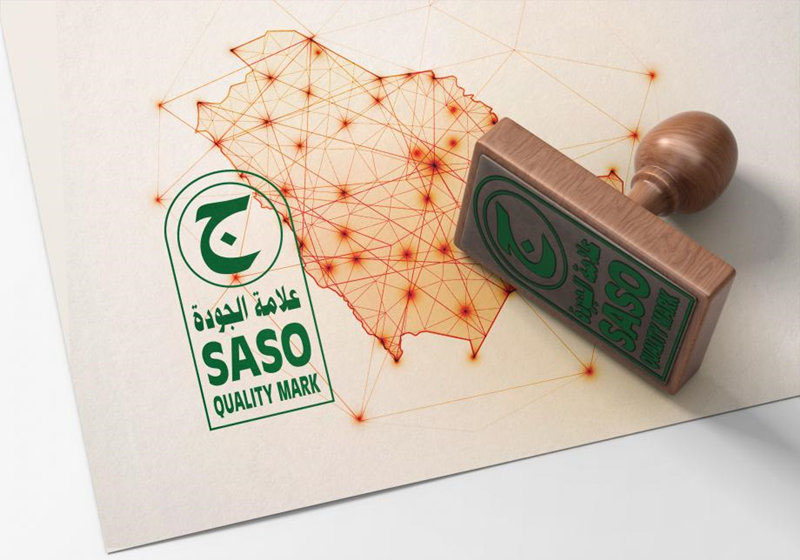From January 1, 2025, all goods exported to Saudi Arabia will apply for saber certification -SC certificate before arriving at the port
From January 1, 2025, all goods exported to Saudi Arabia must submit an application through the SABER system and obtain a batch certificate (SC) before the arrival of the goods at the port, and the SC certificate applied after arrival will be deemed invalid, resulting in invalid customs clearance. This new regulation was developed by the Saudi Arabian Standards Organization (SASO) to ensure that imported goods meet the quality and safety standards required by the Kingdom. Here's a closer look at the new rules:

1. Overview of SABER certification
SABER certification is a mandatory product certification system in Saudi Arabia, which aims to ensure that imported products comply with Saudi standards and regulations in terms of quality, safety, environmental protection, etc. All products sold in Saudi Arabia, including machinery and equipment, must be SABER certified.

2. Types of SABER certificates
SABER certification is divided into two stages and you need to apply for two certificates:
PC Certificate (Product Conformity Certificate) : This is a certificate of product registration that proves that the product complies with Saudi technical regulations and standards. The validity period of the PC certificate is usually 1 year, and there is no need to repeat the PC certificate for multiple shipments of the same product during the validity period.
SC Certificate(Shipment Conformity Certificate) : This is a customs clearance certificate certifying that the goods imported from the batch are consistent with the products described in the PC certificate and comply with Saudi requirements. The SC certificate is only valid for the imported goods of this batch, that is, every shipment needs to re-apply for the SC certificate.
3. Validity period and application process
SC Certificate:
Validity period: Shorter, usually related to the shipment batch of goods, each shipment of goods need to do a SC certificate.
Application process: Relatively simple, but need to submit product photos, trademarks, HS code and other necessary documents after delivery, and confirm the validity of the PC certificate.
PC Certificate:
Validity: Usually one year, after which you need to reapply.
Application process: relatively complex, need to submit product specifications, technical specifications, test report, production enterprise qualification certificate and other necessary documents, and pass the certification authority review.
4. Scope and importance
SC Certificate:
Scope of action: Focus on the shipment and customs clearance process of a batch of secondary products to ensure that the batch of products meets Saudi standards and regulations during the process of leaving the place of production and shipping to Saudi Arabia.
Importance: As a necessary condition for product customs clearance, SC certificate plays a vital role in ensuring the smooth entry of goods into the Saudi market.
PC Certificate:
Scope: Covers the entire production cycle of the product to ensure that the product complies with Saudi standards and regulations throughout its life cycle.
Importance: As a necessary condition for a product to enter the Saudi market, the PC certificate has a decisive impact on whether the product can be sold in the Saudi market.
5. New requirements for SABER-SC certificate
According to the latest notification from SASO, from January 1, 2025, all goods exported to Saudi Arabia must comply with the following new regulations:
Pre-arrival application: All products exported to Saudi Arabia must apply for SC certificate through the SABER system before the goods arrive at the port. The SC certificate applied for after arrival at the port will be deemed invalid, resulting in customs clearance of the goods.
Provide the bill of lading to confirm the status in transit: In the subsequent application for SC certificate, you need to provide documents such as the bill of lading to confirm the status of the goods in transit. This is to ensure that the application for SC certificate is consistent with the actual transport of the goods.

6. Process of applying for SABER-SC Certificate
The process of applying for a SABER-SC certificate usually includes the following steps:
Importer Submission application: The importer submits an application for SC certificate through the SABER system before the goods are shipped.
Verify the validity of the PC certificate: The SABER system verifies the validity of the PC certificate corresponding to the batch of goods to ensure that the product has obtained the PC certification.
Pay the certification fee: Importers are required to pay the certification fee for the SC certificate.
Issue SC certificate: After the certification body has passed the audit, SABER system issues SC certificate online.
7. Precautions
Advance application: It is recommended that trading parties apply for the required certificate as early as possible before the shipment of the goods to ensure that the goods can be smoothly cleared.
Understand the requirements: Before applying for SABER certification, it is recommended that companies have a detailed understanding of the relevant certification requirements and processes in Saudi Arabia to avoid unnecessary troubles and losses.
Our company has customers in the Saudi market, who purchase products from us including Round Metal Basket, Kitchen Storage Rack, Utensil Holder, Napkin Holder, etc. In order to ensure the smooth entry of these products into the Saudi market, we must provide our customers with SABER certification and SC certificate as required. We will conduct certification for each batch of products exported to Saudi Arabia in strict accordance with regulations to ensure smooth customs clearance and meet the compliance requirements of the Saudi market.
In short, from January 1, 2025, all goods exported to Saudi Arabia must apply for SC certificates through the SABER system before arriving at the port, and strictly comply with the new SASO requirements. This will help ensure the quality and safety of imported goods and promote cooperation and development between Saudi Arabia and its international trading partners.
